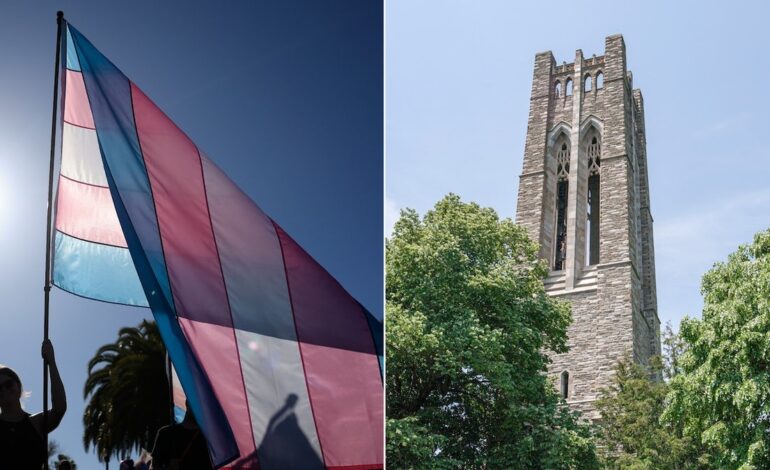Swarthmore Sued After Trans Athlete Reinstatement Sparks Controversy

BREAKING: Swarthmore College is facing a lawsuit from transgender athlete Evelyn Parts, alleging the school improperly reinstated her to the women’s track team after the NCAA implemented new rules prohibiting males from competing in women’s sports. The lawsuit, filed this week, marks a significant escalation in the ongoing debate surrounding trans athletes in competitive sports.
JUST ANNOUNCED: Parts claims she was removed from the women’s team in February 2023, the same month the NCAA altered its gender eligibility policies following an executive order signed by former President Donald Trump. However, Parts asserts she was “fully reinstated” to compete on April 11, 2023, and continued to race on the women’s team until her graduation in May.
This lawsuit makes Parts the third trans athlete to sue a U.S. college in just one month over similar allegations. The impact of these legal actions is already rippling through the athletic community, raising critical questions about the rights of transgender athletes in collegiate sports.
In a statement to Fox News Digital, Swarthmore said, “We deeply value our transgender community members… We recognize that this is an especially difficult and painful time for members of the transgender community.” The institution emphasized its commitment to providing a supportive environment but refrained from further comments due to the pending litigation.
Parts has made headlines for her performance, including a victory in the women’s 10,000 meters at the Bill Butler Invitational and participation in the Centennial Championships in early May. Her attorney, Susie Cirilli, has publicly backed Parts’ claims, stating, “Swarthmore chose to follow that policy and disregard federal and state law.”
The controversy doesn’t end with Swarthmore. Ithaca College also faced scrutiny for allowing a trans athlete to compete in a Division III rowing competition, raising further concerns about compliance with NCAA regulations. The NCAA has made it clear that athletes assigned male at birth cannot participate on women’s teams, and any violations could result in teams being classified as mixed and thus ineligible for women’s competitions.
The political climate surrounding trans athletes remains heated, with Trump’s administration previously issuing an executive order that protected trans athletes’ rights to compete alongside their gender identity. Nevertheless, the recent NCAA rule changes have ignited a wave of lawsuits, including actions led by athletes like Caroline Hill, who have shared their experiences competing against trans athletes.
As these legal battles unfold, the implications for colleges and universities across the United States are profound. Institutions are now under intense scrutiny, facing the challenge of balancing inclusivity for transgender athletes while adhering to new regulatory standards.
WHAT’S NEXT: Legal experts are watching closely as these cases continue to develop. The outcomes could set significant precedents for how colleges navigate the complexities of gender identity in sports. As the NCAA and various colleges respond to these lawsuits, the conversation around trans inclusion and equality in athletics is sure to intensify.
Stay tuned for more updates on this evolving story. Follow Fox News Digital for the latest developments on this urgent issue.






